Frameline47 Interview: Co-directors Lisa Marie Evans & Marianne K.Martin; Producer Cheryl Pletcher Discuses their Documentary “In Her Own Words: 20th Century Lesbian Fiction
Narrated by LGBTQ+ historian Lillian Faderman and illuminated through interviews with trailblazers like Jewelle Gomez (The Gilda Stories), Dorothy Allison (Bastard Out of Carolina), and Sarah Waters (Fingersmith), In Her Words: 20th Century Lesbian Fiction charts a literary journey from post-war lesbian pulp to modern bestsellers. Highlighting the successful and controversial, directors Lisa Marie Evans and Marianne K. Martin skillfully delve into stories that defined eras of lesbian writers, and the changing socio-political landscapes that encouraged an evolution of the genre. In Her Words: 20th Century Lesbian Fiction pays loving tribute to this evolution of lesbian and queer fiction, told through a lens of broader American history.
Starting in 1928, readers fell into The Well of Loneliness— a groundbreaking lesbian novel, albeit a tragic one. By the late 1990s, lesbian fiction had climbed out of the well and into a diverse world of stories and storytellers who were publishing increasingly multifaceted stories (some of them even happy ones). This film will inspire lit lovers of any age to return to old favorites, while igniting curiosity for a new literary tryst or two.
In Her Words: 20th Century Lesbian will be shown at Frameline47 June 22, 6 PM at the Roxie Theater in San Francisco and will stream online June 24 — July 2, 2023. For more information and to purchase tickets, go to: www.framline.org.
Gary Carnivele interviews co-directors Lisa Marie Evans and Marianne K. Martin and producer Cheryl Pletcher.
Gary: Tell us about why this subject matter is so important to you and why you were compelled to create this wonderful documentary.
Marianne: The idea for a documentary began when I was asked to give a keynote speech at the National Music and Women in the Arts Festival. It could be on anything that I wanted – my career, my next book, publishing lesbian fiction. I began thinking about what books had had the most impact on me over the years and discussed them with friend and fellow author,
Sandra Moran. Together we put together a presentation that highlighted classic lesbian fiction and their impact on society from 1920 to 2000. The overwhelmingly positive response to our presentation and the sudden death of Nancy Garden, the author of a groundbreaking novel we had highlighted, Annie On My Mind, compelled us to get as many of the authors as possible on
film.
Cheryl: My wife, Sandra Moran, was working with Marianne K. Martin on a project to get groundbreaking 20th Century lesbian fiction authors on film. Sandra and Marianne wanted to
interview these authors in order to document this important history. Less than a year after this project was initiated by Sandra and Marianne, we found out Sandra had stage 4, incurable
cancer. Less than a month after we learned she had cancer, Sandra was gone. What compelled me to help make this documentary a reality was Sandra’s legacy. It was important to see this
dream of Sandra’s become a reality.
Gary: By taking on an entire century, you would need to cover a lot of literary territory. Why was it important for you to delve into 100 years?
Marianne: For so many readers and writers of lesbian fiction, The Well of Loneliness, written in 1928 by Radclyffe Hall, was the first lesbian book they read. Lesbian-themed books published between the 1920’s and 2000 present a fascinating study of society’s view of lesbians and the
effect it had on their lives and on society. The limited number of books available during those
years made groundbreaking books clear and obvious landmarks. The following are just a few of
those landmarks:
The black lesbian voice of Jewelle Gomez in The Gilda Stories
Beyond the Pale, written by Jewish lesbian Elana Dykewoman
The explicit sexual content of Katherine Forrest’s Curious Wine
And, the first happy ending of Patricia Highsmith’s The Price of Salt
Gary: I can imagine the research phase of writing the screenplay was intense. How were you able to so masterfully remind us of and, in some cases, introduce us to so many authors
in 99 minutes?
Lisa Marie: This making of this film was a deep journey into the world of lesbian fiction and LGBTQ+ history, much of which was unfamiliar to me prior to beginning this project. The
research was massive. Editing down to 99 minutes meant we left out a lot of amazing material. We want to make sure that history is shared as well.
Marianne: I think one of the things that helped us cover so many authors in a relatively short span of time is that we just let them talk. It’s difficult for an interviewer to know exactly what
questions will get the author to reveal the most unique aspects of their personal journey. Much of what we learned came from Lisa Marie doing a beautiful job of making the author feel
comfortable, asking a few leading questions, and then allowing them the freedom to tell their stories. And they gave us a treasure-trove of information. Probably the most difficult part was
choosing what was most important to include in the documentary – what was unique about the author’s journey, where did their strength come from, what did their book tell us about our
society at the time? And how did their book, their voice, affect our culture?
Gary: Tell us about some of the writers interviewed in the film and what surprised you most about them and their work?
Lisa Marie: Ann Bannon, the Queen of Lesbian Pulp, was so generous with her interview. I did enjoy hearing her talk about Marijane Meaker. Interviewing Jewelle Gomez, who will be in attendance at our screening, was like watching a theatrical performance. Beautiful and authentic, it was as if she sang her words.We interviewed Rita Mae Brown in a barn on her ranch in Virginia with stuffed wolves in the
background. That’s just awesome.
Gary: I’m almost sorry for asking, but who are the writers who didn’t make the final cut?
LM: There are many more stories to be documented. A world with more films about lesbian
authors is a better world indeed.
Gary: Who are the deceased writers you really wish you could have gotten before the camera?
LM: I’m sure Marijane Meaker would have had some fantastic stories. Leslie Feinberg has always been an inspiration to me.
Marianne: Two deceased authors who I would have loved to have captured on file were Virginia Wolfe and Patricia Highsmith. Each of a different time in history, each socially and
emotionally complicated. I would love to know what they needed from life, what tortured them, and what writing such important work meant to them.
Cheryl: Patricia Highsmith has always intrigued me. I’d love to know the story behind Price of Salt. What motivated her to pen it? Nancy Garden’s Annie on my Mind was such a key game
changer. And Nancy’s passing was an impetus for developing this documentary.
Gary: How much pressure did you feel as filmmakers to explore such an important aspect of queer history?
Lisa Marie: We carried Sandra Moran with us throughout this project. We, and many in the community who adored her, wanted to see this project succeed. Success for us meant creating
a film that documented key historical authors of lesbian fiction and authentically told their stories in relation to the societal events around them. To do that, we sought input from the
authors interviewed in this film and important voices in the community. Lillian Faderman’s wealth of knowledge and feedback was crucial. We understand that there are many stories we weren’t able to tell in this film. Fortunately, there’s more films to be made. And they need to be made. Especially as books continue to be banned.
Gary: If memory serves me right, it took several years for lesbian fiction to get mainstreamed by the big publishers after gay fiction started really taking off in the late 1970’s. Was that the case or was lesbian fiction always there but forced underground?
Marianne: As the film shows, lesbian fiction has always existed – scarce, marginalized, and often banned. Few authors had the opportunity to be published by mainstream publishers, and
even those risked banning and censorship. Most writers used pen names (sometimes usinginitials or a male name) to better their odds of publication and elicit respect not given to women
writers. Many authors, without the distributorship of a publishing house produced and marketed their books themselves, even hand-selling on the street or in private parties. And to
make production and distribution even more difficult, The Comstock Act of 1873 (still largelyintact today) made it illegal to send “obscene, lewd or lascivious”, “immoral”, or “indecent”
publications through the mail. That not only made distribution difficult, but made even
possession a misdemeanor.
Gary: I love that In Her Words discusses the importance of small women-owned publishing houses and women’s bookstores to helping lesbian works to readers. Tell us about some
of the most important publishers then and now.
Marianne: There were a number of small lesbian presses during those early years, including Firebrand, Cleis, Rising Tide, Spinsters Ink, and New Victoria. But, the largest and longest
operating exclusively lesbian publisher was Naiad Press. It was without a doubt the most important and effective of the presses for a number of reasons. Barbara Grier’s mission for
Naiad was to make it possible to put a lesbian book in the hands of every lesbian who wanted one. After society seemed to offer a relaxation of the Comstock Act, Naiad developed a mailing
list that provided a monthly newsletter and order form, and enabled them to mail books to women who either couldn’t or wouldn’t buy them from a bookstore. And probably equally as
important was Naiad’s commitment that their books deviate from the restrictions of the past and every book have a happy ending.
Gary: Tell us about the impact of some of the early novels you include in your documentary and how the writers managed to not be censored?
Marianne: Many of the novels that we’ve included in the documentary were at some point banned or challenged. Their impact was in spite of that censorship. Lesléa Newman’s, Heather
Has Two Mommies, is a good example. It was banned, burned, glued, spit on, and destroyed. But it proved to be a groundbreaking children’s book that is still relevant thirty years later.
Patricia Highsmith, writing as Claire Morgan, probably avoided having The Price of Salt (1952) banned because her publisher marketed it as a suspense thriller. And despite it being
published during the wave of pulp fiction and in the same year that the American Psychiatric Association classified homosexuality as a mental illness, this book has been touted as lesbian
fiction’s first happy ending.
Gary: You honor the racy pulp dime-store novels as an important aspect of lesbian fiction. Did you feel it was important to discuss novels not necessarily marketed to lesbians or
even women, and were subjected to the ‘male gaze’ of editors and even the targeted male readers?
Marianne: During the wave of lesbian pulp fiction in the 1950’s, publishers adhered strictly to the restrictions that allowed lesbian-themed books to be produced and distributed. The main
character must have one of only three options at the end of the book – death, madness, or living in denial alone or with a man. But the pulp fiction era did offer two things that hadn’t
been available before; cheap paper from pulp that produced 35 cent books that were affordable enough to leave on the seat of a bus for someone else, and sales numbers that sky-
rocketed. Odd Girl Out, the first in Ann Bannon’s Beebo Brinker Chronicles was the second best-selling paperback of 1957. In order to reach a few, you have to sell to many.
Gary: What are you hoping audiences take away from In Her Words?
Lisa Marie: Empowerment. LGBTQ+ lives play a vital role in history and we have many storiesto celebrate.
Marianne: I hope that In Her Words leaves the audience with a clear sense of our literaryhistory, the struggles we’ve faced, the progress we’ve made, and an appreciation of the
personal courage that it took to chronicle it.
Cheryl: An understanding of the bravery of many of these women. Many risked it all to share their stories in order to give hope to their readers. Motivation to actively make a difference. Change happens when people are willing to stand up and speak out for what matters.
Gary: How thrilled are you to be part of Frameline47?
Lisa Marie: Absolutely thrilled. I’m excited for the many connections and resources ahead. We’re all thrilled to be screening in San Francisco where a great deal of our history was lived.
Gary: What are some of the other festivals you’ve shown your film and what has impressed you most about folks’ comments and queries?
Cheryl: I have been amazed by the number of recognition awards we have received from festivals. At the most recent festival showing we received not only the Best Documentary award but also the Audience Choice award! Incredible. I am so grateful that the film has been getting this kind of recognition.
Gary: What are you working on now?
Lisa Marie: We want to ensure this film lives up to its fullest potential and continue to spread the good word of lesbian literature.
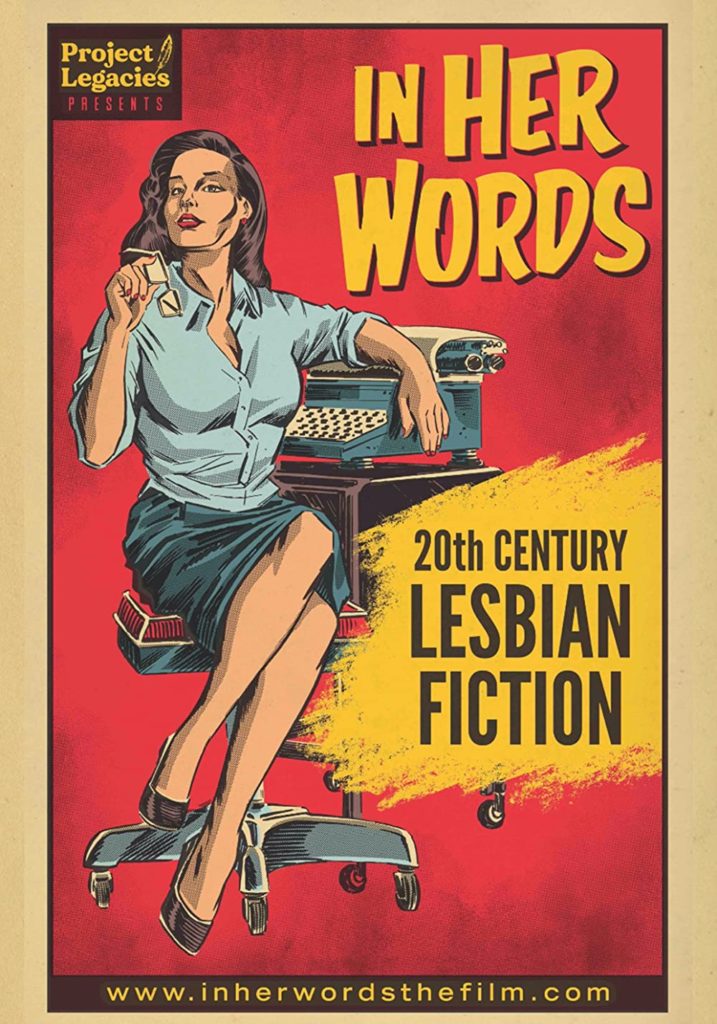

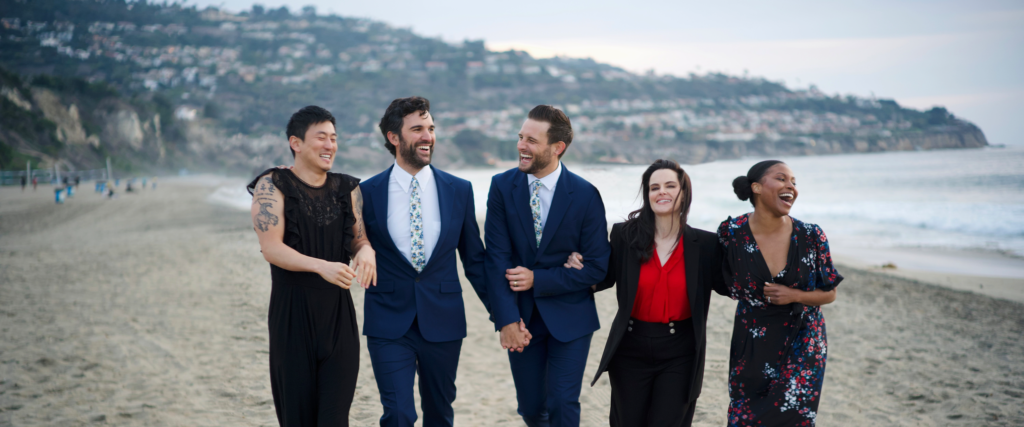

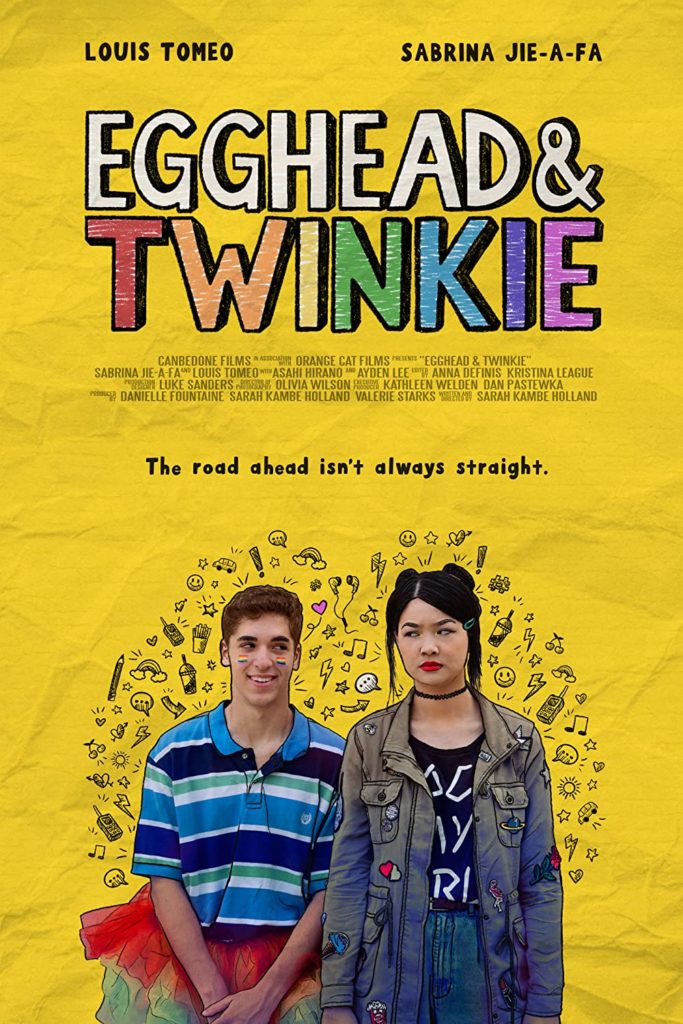
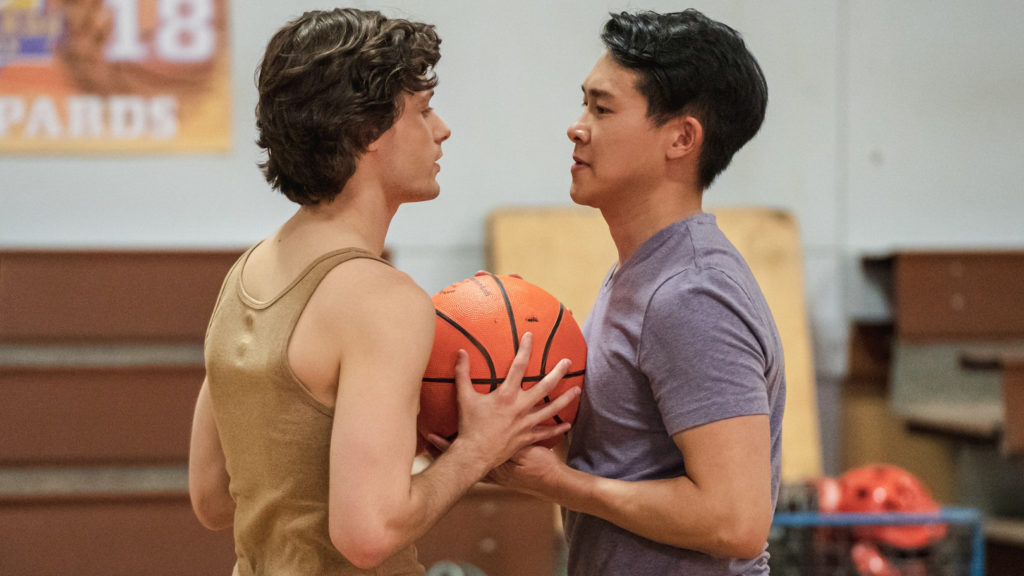

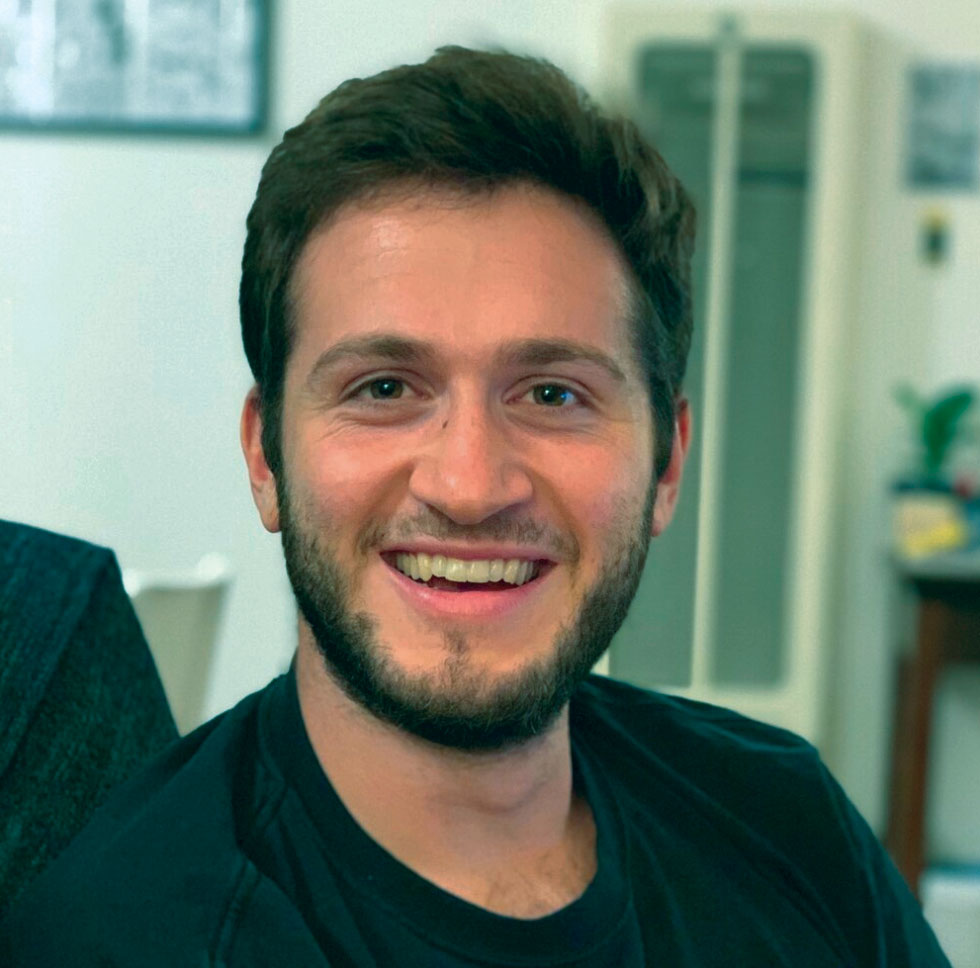
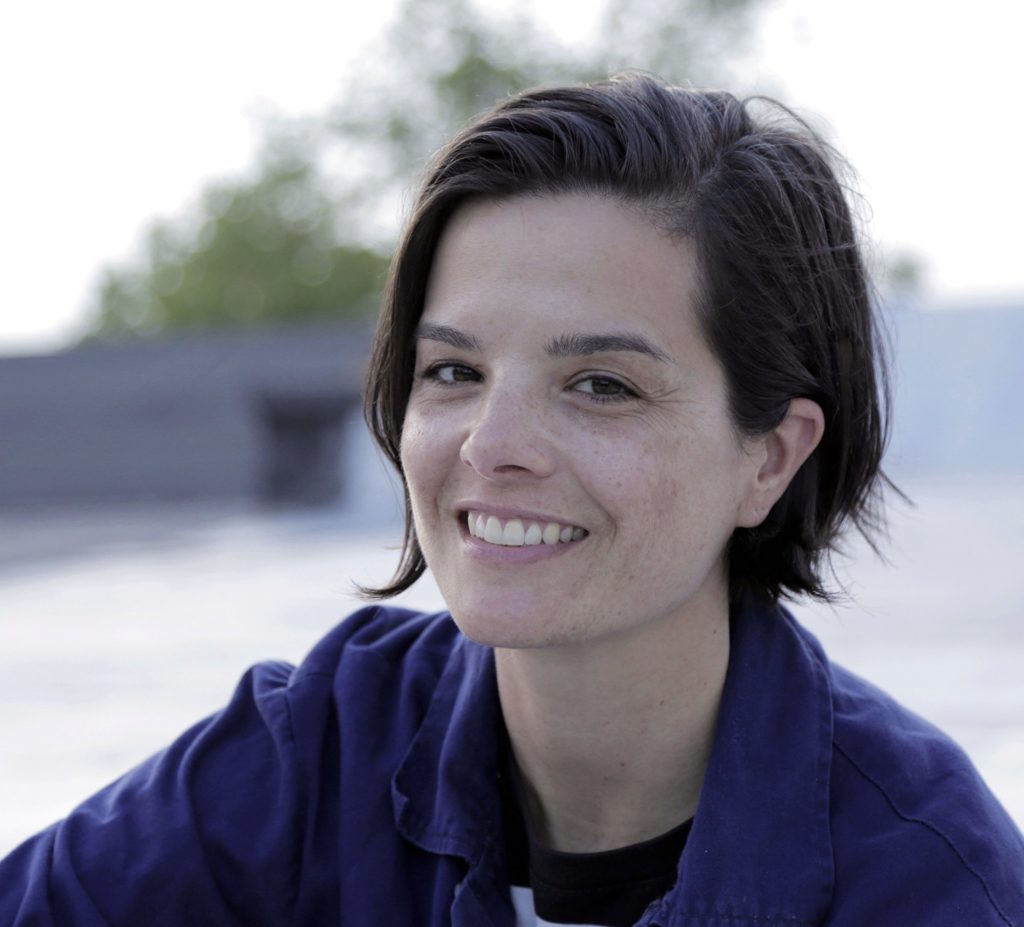
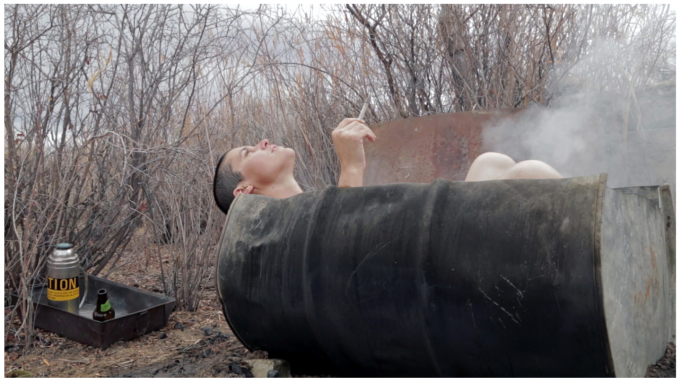
 From the Opening Night Film, 26.2 TO LIFE, directed by Christine Yoo.
From the Opening Night Film, 26.2 TO LIFE, directed by Christine Yoo.  From the film, BLACK BARBIE, directed by Lagueria Davis.
From the film, BLACK BARBIE, directed by Lagueria Davis.